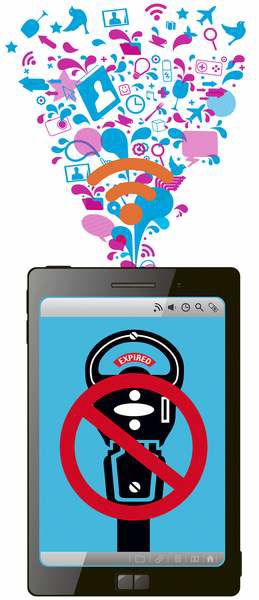At Sprint, the data buffet is open (grazing welcome)
Published 5:00 am Tuesday, September 20, 2011

- Illustration by Minh Uong New York Times News Service
All the data you need on a smartphone, at full speed, for a single price — Sprint Nextel is the only major wireless carrier in the United States that still offers this with new cellphones.
Brave little Sprint, with about a 15 percent market share, is our best hope for keeping a piece of the mobile Internet free of meters. But if data gluttons are the only ones who partake of Sprint’s feast, unmetered service will be unsustainable.
“The simplicity and peace of mind from unlimited services at one consistent price must attract mainstream users, not just outliers,” says Will Souder, Sprint’s vice president for pricing.
Souder compares Sprint’s business to that of a pizzeria that offers an all-you-can-eat lunch. “If I come in and eat eight pieces, that needs to be balanced by my sister coming and eating at the salad bar,” he says.
Three years ago, Sprint introduced its “Simply Everything” plan for $99.99 — covering, within the United States, unlimited voice calls, data and text messages. “When we launched, we had a lot of trepidation,” Souder says, “but we were pleasantly surprised with the number of relatively light users who were willing to pay more for this plan.”
If Sprint Nextel’s financial results were showing a nicely profitable business, humming in the shadows of its much bigger rivals, Verizon Wireless and AT&T, customers who hate meters could rejoice.
Unfortunately, the company has not posted annual net profits since 2006. Souder says the unlimited plans have not contributed to the losses, saying Sprint has had four consecutive quarters of growth in average revenue per user and has reversed a trend of losing customers.
Sprint has been monitoring use patterns and costs, and in January it increased the price of “Everything” plans for newly activated smartphones by $10 a month. The move has helped the company keep its business on a healthy, sustainable foundation, Souder says.
Sprint is behaving more like some carriers across the Atlantic. Smaller operators in Europe “tend to be more aggressive in pricing strategies” and are using unlimited data plans to differentiate their offerings from larger rivals, says Thomas Tschentscher, a partner at the international law firm Freshfields Bruckhaus Deringer who specializes in telecommunications.
In the United States, T-Mobile sells “unlimited” plans, too, but it throttles back the download speeds when data use passes a certain threshold each month.
Tschentscher says that in Europe, data throttling is all but absent. “Because of the interoperability of the handsets, customers in Europe can easily switch carriers,” he says. “So it would be a competitive disadvantage for a carrier to impose throttling down if the others don’t.”
Sprint says its network hasn’t been swamped by too many users wanting to watch movies or television shows on Android phones. “Long-form video on the handset today is still in its infancy,” Souder says. Of course, tablets are a different matter — and that’s why Sprint has never extended unlimited data plans to them.
There are no signs that Sprint will pull back from unlimited data, at least for now. In fact, the company seems to be staking its identity on the appeal of all-you-can-eat pricing. It may even expand the concept.
Speaking at the Dive Into Mobile conference in December, Daniel Hesse, Sprint Nextel’s CEO, talked about the logical next step: including the phone, tablet, PC, e-reader and whatever in a single plan. The idea was mentioned merely as a possibility, and it was not clear whether it would be feasible to have unlimited data for multiple devices on one plan — the ultimate in simplicity.






